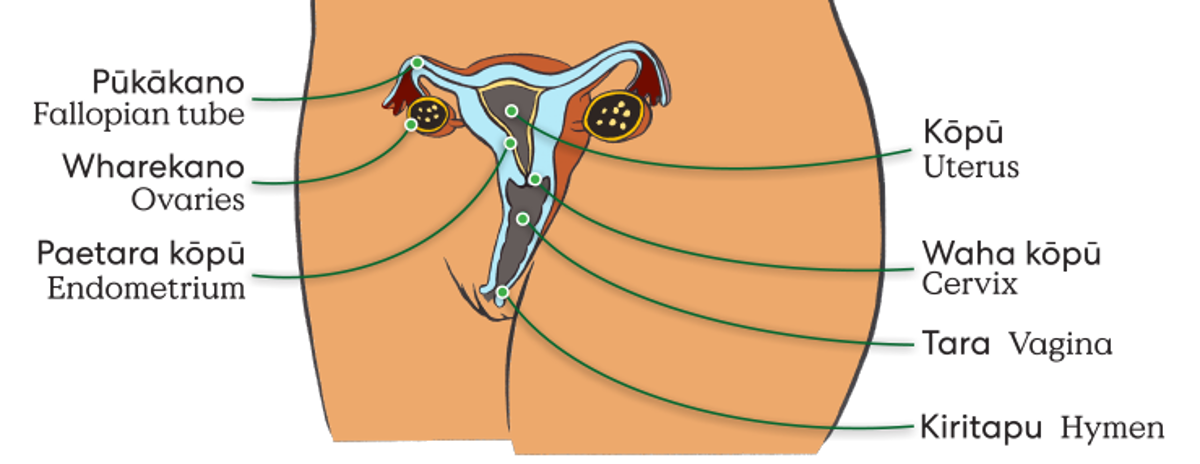What are periods?
-
A period is part of your monthly cycle.
Each month, your body prepares for a possible pregnancy. If you don’t become pregnant, the lining of your uterus is shed and comes out of your vagina — that's what a period is.
-

The vagina, and reproductive system
-
-
Why do periods happen?
-
The best way to explain why a period happens is to explain the monthly cycle:
- Each month, hormones cause an egg (ova) in the ovaries to start maturing and be released from the ovary. This process is called ovulation.
- The egg moves along the fallopian tube towards the uterus. At the same time, the lining of the uterus becomes thick and soft with blood and tissue. This happens in anticipation of the egg being fertilised. If the egg is fertilised — the egg joins with a sperm — it will normally implant itself into the lining of the uterus and grow.
- When the egg is not fertilised, the lining of the uterus is not needed — so it sheds and comes out of the vagina. This is what people call a period.
Blood, cells from the lining of the uterus, cervical mucus, and vaginal discharge will all come out of the vagina during a period.
Most people lose between 4 and 12 teaspoons of blood each period.
The colour of the blood might change from red, to brown or black, towards the end of your period. This colour change is normal. The darker colour is a sign that the blood is slightly older — because it’s not leaving your body as quickly.
There might also be clots in your blood. Usually, your body tries to stop period blood from clotting — but if you have a heavy period, clots can form. If they are large (about the size of a $2 coin or larger), it’s a good idea to talk to one of our nurses or doctors.
-
-
What are the signs of a period?
-
Your hormone levels change before and during your period. The hormones that change are called: oestrogen and progesterone. These hormone changes can cause different symptoms, before or during your period, such as:
- Cramps — it’s common to have some cramps at the beginning of a period
- Headaches — in the few days leading up to, or during, your period
Sore or swollen breasts before your period - Diarrhoea (runny poo) — prostaglandins (chemicals released during your period) help the muscles in your uterus and intestines to move.
- Prostaglandins can also give you diarrhoea
- Bloating — feeling full and tight in your belly, before and during your period
- You might get pimples on your face or body, seven to ten days before your period
- You might crave particular foods before your period
- Tiredness
-
-
Do you have to have your period?
-
If you don’t want to have your period, you don’t have to.
Some types of contraception can help with the symptoms of your period. Other types of contraception let you skip your period. For example: if you use the contraceptive pill, you can choose whether you want to have a period, or not.
Talk to one of our nurses or doctors — they can give you more information or prescribe you the medications that you need.
-
-
What is normal period pain?
-
A little bit of pain, for one or two days, is very common.
Some people think it’s normal to have a lot of pain — but they are wrong. Lots of people aren’t sure whether they have a normal amount of pain, or a lot of pain. If you aren’t sure, book an appointment to ask us. We can help you work out what might be going on, and what you can do about it.
-
-